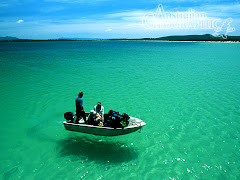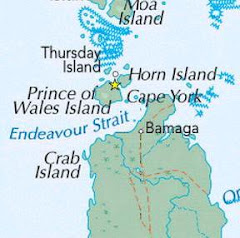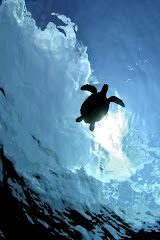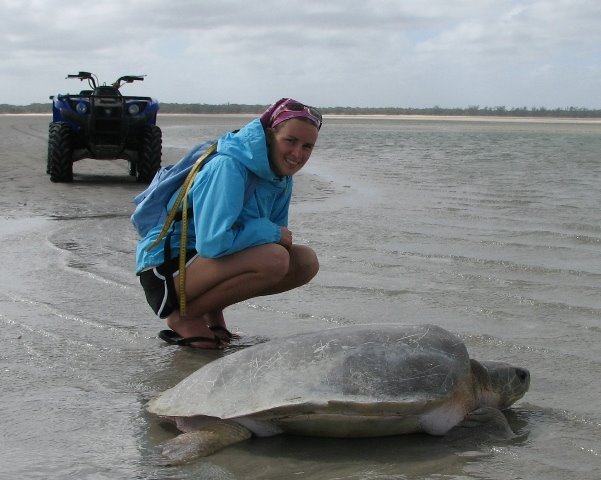
You would think that being so far away from any form of civilisation on a remote, untouched part of the Cape York wilderness that we would be free from any human influence. It’s far from the truth. The beach is littered with beach debris (ie. rubbish) originating from illegal fishing vessels, the commercial fishing industry, cargo shipping and from nearby countries such as Indonesia. Some of the things which land on the beach are just mind boggling – kids toys, refrigerators and thousands upon thousands of thongs (or ‘flip flops’). Some of the more common items are water bottles, glass bottles, gas cylinders, floats, rope and net. This is common on remote beaches all over Cape York and the northern Great Barrier Reef.
We have had to untangle a number of nesting flatbacks from ropes and nets which they have been caught in whilst making their way up or down the beach. One flatback had been caught in rope which was wrapped around her neck and strangling her. We also found hatchlings caught in a nest and unable to emerge because of rubbish which had been accidentally pushed into the nest by the nesting mother.
We undertook a beach debris survey on a 250m stretch of beach. A lot of products such as deodorant bottles, glass bottles, rope, net etc we can identify origin. We sourced 90% of the rubbish originating from Indonesian sources – illegal fishing vessels and possibly areas like Irian Jaya. The number of plastic water bottles is staggering, and is making us think twice about buying them anymore.
The amount of rubbish in our oceans is nothing short of a disgrace. To come to a remote location such as Crab Island and to see so much man made rubbish, and to see the effects first hand, makes you realise that the impact of humans is far reaching.
Marine debris in Australia is listed as one of the main threats to the recovery of sea turtle populations in the ‘Recovery Plan for Marine Turtles in Australia’ [www.deh.gov.au/coasts/publications/turtle-recovery/index.html]





No comments:
Post a Comment